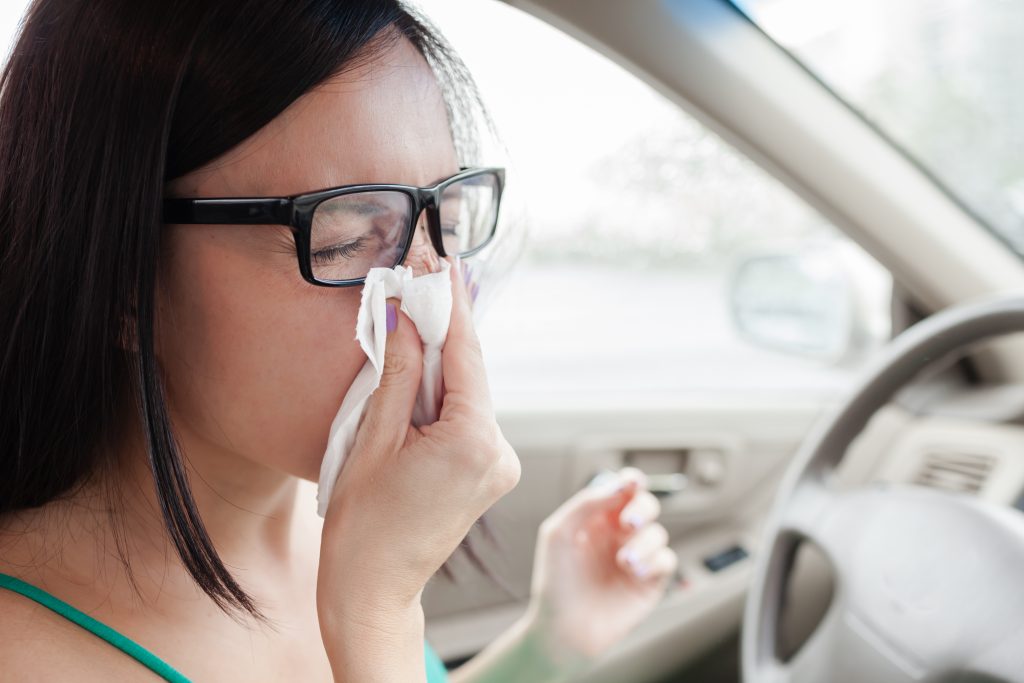How Pollen Filters in Cars Protect Against Hay Fever
- Pollen filters help capture particles that enter your cabin, keeping you & passengers comfortable
- Replace the filters as part of your servicing schedule to ensure clean air
- Additionally, limit hayfever in cars by keeping windows up & regularly vacuuming the car
- FYI – air filters clean engine air, pollen filters clean cabin air

The sun is shining, the flowers are flourishing and the distinctive smell of freshly cut grass is in the air – for many, these are exciting signs that summer has arrived. That is, until hay fever strikes. When the pollen count is high, those prone to hay fever suffer from itchy eyes and incessant sneezing; both of which can make driving on the roads difficult.
Drivers may not consider their car when it comes to hay fever season and pollen counts – in actual fact the symptoms can prove just as bad as pollen can still enter the car.
Pollen filters – otherwise known as cabin filters – serve an important purpose for hay fever sufferers as they capture the dirt and debris which can cause irritation. Read further to find out more about how these specialist filters can protect you and your passengers from a pollen attack!
How do pollen filters work?
A good way of describing a pollen filter is to think of it like a sieve – it allows outside air into the vehicle through the car’s fan system (for air conditioning or heating) whilst capturing and keeping pollen and debris out.
Over time, pollen filters can collect considerable amounts of dust, particles, debris and unwanted waste which can cause them to become blocked, leading to poor air flow and bad smells inside the car.
How often do pollen filters need to be changed?
For vehicle owners, maintenance is key to ensure all of the components are working as they should be for reliable functionality. When it comes to the pollen filter, there are a few factors which can affect how often it needs changing:
- Type of car
- How frequently and far you drive
- Where you drive (driving in polluted areas, for example, cities, means it will need replacing more often)
What level of service do Mr Tyre offer?
No matter your make or model of car, a major service at Mr Tyre will ensure any problems or blockages in your pollen filter are rectified by replacing with a new one. Likewise, if you have noticed that your air vents are not performing as they should, there’s a possibility that it’s become clogged with grime and debris. As such, we recommend visiting one of our branches, where a vehicle technician will be happy to take a look. This preparation can come in handy ahead of hay fever season which runs from April-September. You can view our service plans here.
Are there any driving tips for hay fever sufferers?
In addition to the pollen filter, there are several quick and easy driving tips hay fever sufferers can use to enjoy their journey, even if the pollen count is high:
- Keep your windows up and turn your air con on
- Give the interior of your car a thorough vacuum throughout the summer season to remove any dust or pollen that enters when doors/boots are opened
- Take non-drowsy hay fever medication to ensure your driving isn’t affected
- Keep your stash of tissues stocked up!
What is the difference between an air filter and a pollen filter?
The main difference between an air filter and a pollen filter is where they are located in the car:
- the air filter can be found in a sealed box in the engine area and it cleans the air going into the engine
- the pollen filter is found in the air con or heating system and cleans the air that’s blown through the vents into the pollen
If you suspect that your pollen filter needs replacing, or your scheduled service has highlighted that a new one is required, look no further than Mr Tyre to help. Partnering quality workmanship with competitive prices, we have worked hard to earn our industry standing as one of the leading vehicle care companies operating throughout Central England. Simply contact us today to find out more or to book an appointment time slot.


